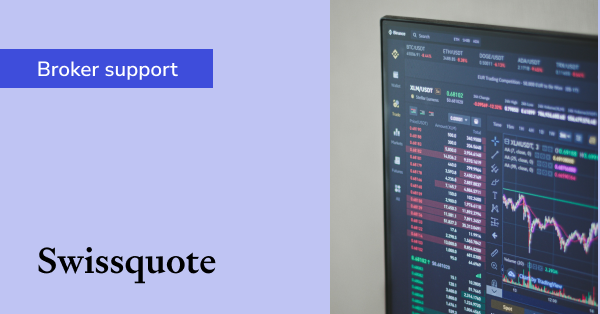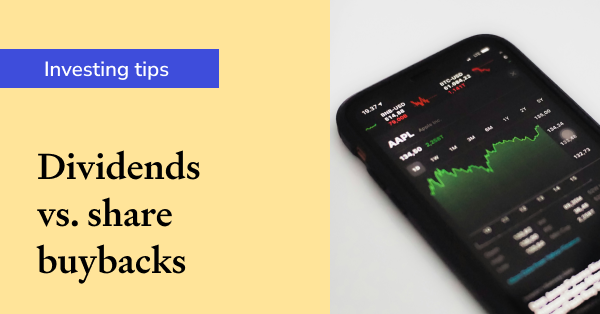Five key characteristics of quality companies in reporting season
Disclaimer: The below article is for informational purposes only and does not constitute a product recommendation, or taxation or financial advice and should not be relied upon as such. Always check with your financial adviser or accountant to obtain the correct advice for your situation.
This Australian reporting season was always going to be one to remember as listed companies reported on the peak period of disruption caused by COVID-19. We saw ‘Earnings per Share’ growth in the ASX200 fall a remarkable 38% in the first six months of 2020[1]. For context, that was larger than what we experienced during the weakest point of the GFC (-20%).
With a full 40% of companies missing analysts’ earnings estimates, it can be difficult to separate the good from the bad. As professional investors though, we try to cut through the noise and the sensational headlines, to focus in on what really matters when assessing company performance and prospects for the long term.
We look for quality companies, which we define as having five key characteristics. I’d like to share our approach with you, with the hope that it helps you on your own investment journey.

The five key characteristics of quality companies
1. Business prospects and strategy
The first question we ask ourselves when assessing companies is ‘do they have a strong strategy and prospects?’. Companies that do are better able to navigate uncertainty and capitalise on opportunities to create value. We look at how attractive the market sector dynamics are and the company’s position within that sector. This reporting season made clear that COVID-19 has hit some sectors much harder than others. The healthcare sector, for example, has been a clear beneficiary of changing demand in the market – particularly companies exposed to high demand medical equipment such as respiratory masks and humidification products (e.g. Fisher and Paykel, and Resmed). The energy sector, in contrast, has been hit hard by the collapse in oil and gas prices, as have a number of industrials such as airlines and airports. We expect the short to medium term outlook to remain challenging for these sectors as the global economy slowly recovers.
2. Management
We are in the fortunate position to speak to the management of the companies that we’re investing in every six months. We’re assessing their experience, track record, and execution. We can then use the reporting season to assess whether they’re on track or not. A good example would be Xero, the SaaS accounting software provider; Xero’s management have set very clear milestones, and consistently reiterate these during the reporting season. Individual investors, of course, may not have the luxury of biannual management meetings, but I’d recommend half year and full year results presentations as useful to get a gauge on management’s strategy and execution.
3. Financials
An obvious one perhaps, but the financials of a company are an essential factor to analyse. We focus in particular on balance sheet strength. We like companies with strong cash-flow generation, return on capital and profit margins, as well as low gearing. Never are these factors more important than in times of severe economic pressure such as we’ve seen in 2020 so far. A2 Milk is one of those companies: holding over $800m cash on balance sheet (no debt) and generating c$400m of free cash flow in FY20[2], we view A2 Milk as a company with a significant buffer and the ability to ride out severe market dislocations.
4. Transparency
We want to see a clean company structure. We also want transparency around earnings – can we see where the earnings are coming from? Are they recurring or one-off? Quality companies produce earnings that are more resilient and sustainable. And we also want to see cash-flow conversion i.e. how does the profit the company generates turn into cash in their bank account? Without sufficient transparency, we won’t invest our clients’ money.
5. ESG
We believe that companies that give proper consideration to environmental, social and governance issues (‘ESG’) are more sustainable companies and will outperform over the long term. We embed assessment of these three factors into our investment process, and engage directly with companies on these matters. We’ve recently seen the negative fall-out for companies such as Rio Tinto, AMP and QBE when they fail to meet regulator or community expectations for these factors. I suggest you incorporate this framework into your assessment of a company’s risks, opportunities and long term prospects.
Insights from the latest ASX reporting season
For my reflections on an ASX reporting season to remember, watch this Sharesight webinar where I share important themes we have seen emerge, as well as sector-by-sector analysis and key stocks to watch.
Embedded content: https://www.youtube.com/embed/S_4EFVBlZfA
Quality companies succeed over the long term
Whilst it’s been a tough year for so much of the market, we remain optimistic that companies with those characteristics can weather the storm, capitalise on favourable market trends, and enjoy success over the long term. As you can tell, we think it’s doing the fundamental research that gives you the best chance of finding quality stocks and exploiting market inefficiencies to deliver long term value. I hope the five characteristics of quality I’ve outlined above help you to assess companies and cut through the noise of reporting seasons like this one. Happy investing!
Issued by Aberdeen Standard Investments Australia Limited ABN 59 002 123 364 AFSL No. 240263. This document has been prepared with care, is based on sources believed to be reliable and all opinions expressed are honestly held as at the applicable date. However it is of a general nature only and we accept no liability for any errors or omissions. It has been prepared without taking into account the particular objectives, financial situation or needs of any investor. It is important that before acting investors should consider their own circumstances, objectives and financial situation, the information’s appropriateness to them and consult financial and tax advisers. You must not copy, modify, sell, distribute, adapt, publish, frame, reproduce or otherwise use any of this material without our prior written consent.
[1] Source: Goldman Sachs Global Investment Research, FactSet
[2] Source: The a2 Milk Company Limited, 2020 Annual Report
FURTHER READING

How Sharesight helps advisors track net worth and simplify compliance
We talk to Ryan Jones, Partner, Accountant and Financial Advisor at Jones Louros, about how he uses Sharesight to manage his clients’ investment trusts.

Automatically track Swissquote trades with Sharesight
If you trade using Swiss broker Swissquote, you can automatically import your trading data to your Sharesight portfolio.

Dividends vs. share buybacks: Which is better for investors?
We take a look at dividends and share buybacks, discussing the pros and cons of each, the tax implications and which one is more beneficial for investors.